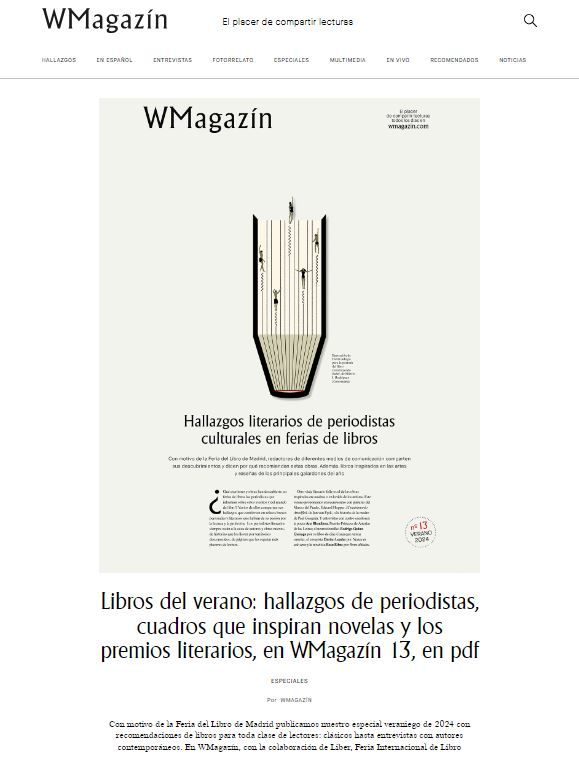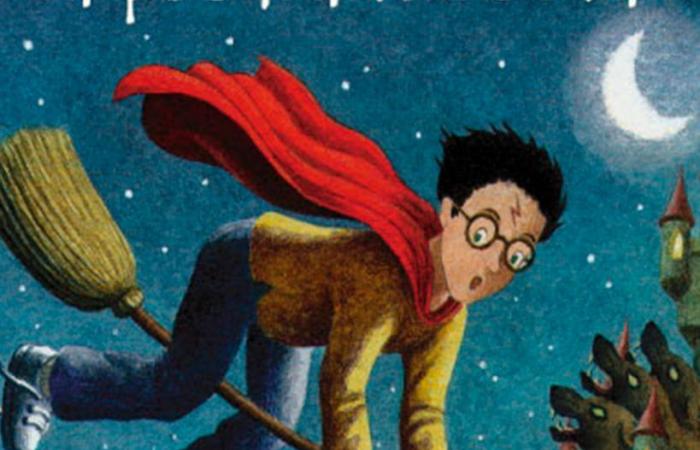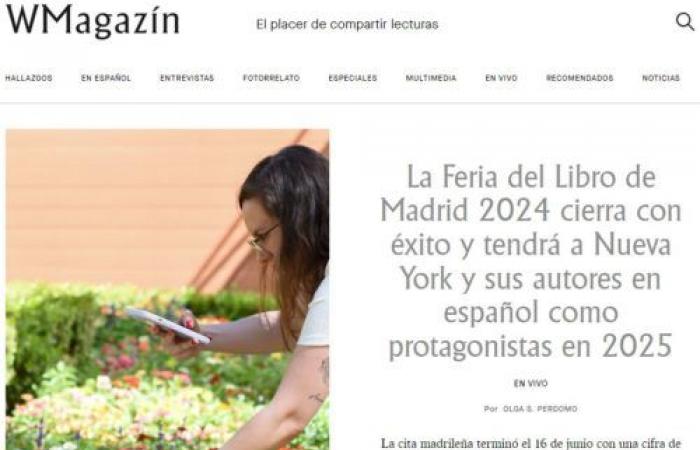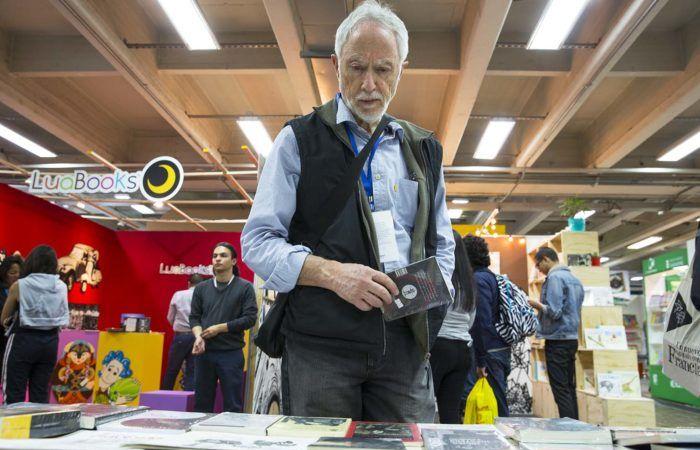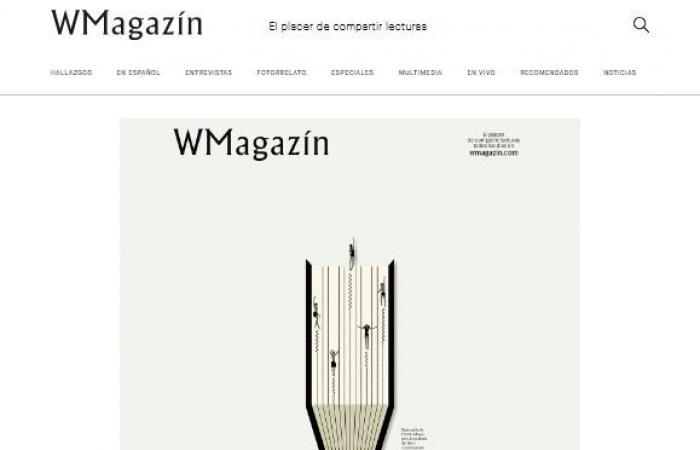We say goodbye to the first half of 2024 with some curious information from the world of books: from the capture of a gang that stole old books from European libraries, to the proposals to reduce the economy to save the world. Welcome to Back to the book in 7 days:
WHAT HAPPENED
Syrian poet Adonis wins the Joan Margarit International Poetry Prize
Adonis (1930), one of the great contemporary writers of the Arab world and always in the Nobel Prize in Literature, has been awarded the II Joan Margarit International Poetry Prize “for a lyrical work of indisputable quality and for his cultural dialogue between civilizations, between East and West. It is also a bilingual and bicultural poetic work,” according to the jury. The first edition of the award went to the American poet Sharon Olds. The award is worth seven thousand euros.
Visits and book sales increase at the Madrid Book Fair 2024
The 83rd Madrid Book Fair, which took place from 31 May to 16 June 2024, achieved book sales of over 10,800,000 euros. A turnover corresponding to the sale of 585,000 copies of around 245,000 different titles.
In this edition the number of public attendance rose to 1,061,000. But, in reality, it is much higher because “the sampling carried out by the technology provider consulted by the Fair management has not taken into account those under 18 years of age in that calculation,” according to the organization. By autonomous communities, after Madrid are Catalonia and Castilla-La Mancha, they are the ones that contribute the most to the total count of unique visitors, mainly from Barcelona and Toledo. And 15% are from outside Spain, mostly from the United States, the United Kingdom and Germany, coinciding with the start and end days of the Fair.
They dismantle a gang of thieves of ancient, rare and historical books
More than 170 high-value books were stolen by a gang of nine Georgian citizens arrested by Europol, the European Police Office. “The criminal group broke into libraries or simply exchanged historical editions for sophisticated copies, causing damage worth €2.5 million,” Europol reported on May 25. Between 2022 and 2023, the gang stole books from the Czech Republic, Estonia, Finland, France, Germany, Latvia, Lithuania, Poland and Switzerland. The criminals would borrow the books and then return a copy.
WHAT’S HAPPENING

Original Harry Potter illustration breaks record
From $650 to $1.92 million. That’s the difference in the price of the cover of the first edition of Harry potter and the Philosopher’s Stone, by JK Rowling. That design was made in 1996 by Thomas Taylor, a recent art school graduate in Great Britain who worked in a bookstore. It is now the most expensive item related to the series of those books.
“The watercolour, depicting the young wizard Harry leaving for Hogwarts from platform 9¾ at King’s Cross station, was part of the private library of an American book collector and surgeon, Dr Rodney P Swantko, whose other rare items were auctioned at Sotheby’s in New York this week,” it reports. The New York Times.
Thomas Taylor was the one who established the world’s conception of Harry Potter, with his iconic round glasses and lightning bolt scar. He was working at a children’s bookstore when he sent samples of drawings of wizards and dragons for the London publisher to review, he said in a 2022 podcast interview. “While preparing to draw the cover, Taylor read an incomplete manuscript, threw out different ideas and made several drafts before arriving at the final design with an editor.”
Will shrinking the economy save the world?
Jennifer Szalai writes in The New York Times on how economic growth has been ecologically costly, which is why a pro-degrowth movement is growing.
“Economic growth has long been regarded as such an obvious blessing that governments around the world pursue it as a matter of course. But in 2016, when a London professor warned an audience in Newcastle that Brexit would lead to a precipitous fall in Britain’s gross domestic product – that well-worn measure of economic activity – he was taken aback by the jeers of a woman. ‘That’s your bloody GDP,’ she screamed, ‘not ours! ’”
The irruption fueled a suspicion that was based on reality: advances in economic growth have too often boosted the fortunes of the richest instead of benefiting everyone. Prosperity, even in the most prosperous countries, has not been shared. But any attention paid to inequality is just a crack in the edifice of economic orthodoxy. Now a much more radical proposal has emerged, looming like a wrecking ball: is economic growth desirable at all?
“In what could be a mission statement for the movement, Hickel writes: “Degrowth is about reducing the material and energy output of the economy to restore balance with the living world, while distributing the income and resources of more fairly, freeing people from unnecessary work and investing in the public goods that people need to prosper.”
This programme represents an overhaul of the capitalist system, not just some reformist tinkering. Nor do its proponents place much hope in technological solutions. “There is no such thing as ‘green growth’,” says Hickel.
WHAT WILL HAPPEN
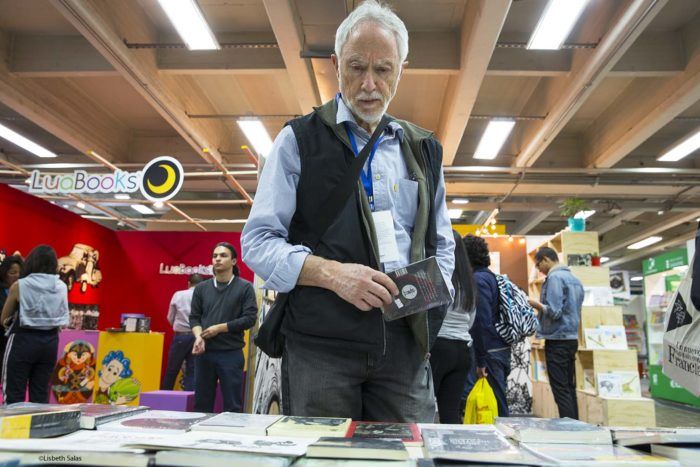
Coetzee continues to distance himself from English
“As I grow older, I find myself increasingly estranged from English and the culture it represents,” confessed Nobel Prize winner JM Coetzee when receiving an honorary doctorate from the University of Murcia (Spain). This is an idea that the South African writer has been reflecting on for several years in the face of the supremacy of English. He even practices what he says, because some of his latest books have been released first in Spanish before being published in English. Another idea of Coetzee is about the possibility that a book and its translation can be comparable without distinguishing between the original and the translation. This is the first Spanish university to grant him this distinction.
The remains of Miguel Ángel Asturias will return to Guatemala
The remains of Miguel Ángel Asturias (Guatemala, 1899- Madrid, 1974) are in the Père Lachaise cemetery in Paris. With the change of Government in Guatemala, the Asturias family wants the remains of the Nobel Prize winner in Literature to rest in his native country. The news comes in the year that commemorates the half century since the death of the Nobel Prize winner, in 1974, and author of works such as Mr. President, Men of Corn and Legends of Guatemala.
According to Miguel Ángel Asturias Amado, the Nobel Prize winner’s son, “the last two governments have proposed to bring his remains back. I have flatly refused, because those governments are part of the ‘Corrupt Pact’, which my father would not have agreed with.”
Subscribe for free to the Newsletter of WMagazin in this link.
We invite you to be a patron of WMagazine and supporting quality and independent cultural journalism is very easy, you can see the instructions at this link.
Discover the WMagazín sections here.
